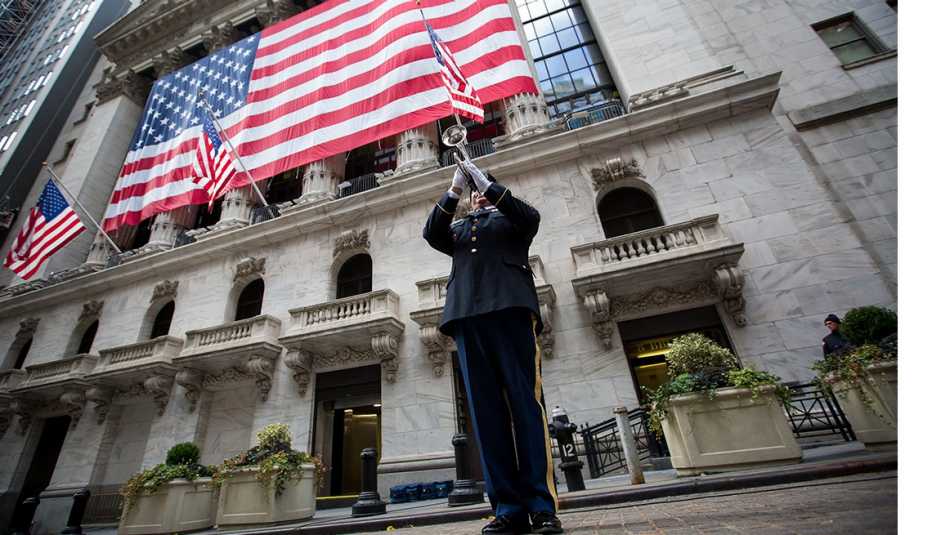AARP Hearing Center


The New York Stock Exchange (NYSE) and the Nasdaq Stock Market follow the same holiday schedule. They close for 10 holidays in 2026, including Washington’s Birthday (also popularly known as Presidents Day) on Monday, Feb. 16.
Here is the 2026 holiday schedule for the NYSE and Nasdaq:
- New Year’s Day: Thursday, Jan. 1
- Martin Luther King Jr. Day: Monday, Jan. 19
- Washington’s Birthday: Monday, Feb. 16
- Good Friday: Friday, April 3
- Memorial Day: Monday, May 25
- Juneteenth National Independence Day: Friday, June 19
- Independence Day: Friday, July 3 (observed)
- Labor Day: Monday, Sept. 7
- Thanksgiving: Thursday, Nov. 26
- Christmas: Friday, Dec. 25
The exchanges typically operate from 9:30 a.m. to 4 p.m. ET on business days. They will close early, at 1 p.m. ET, on two occasions in 2026: the day after Thanksgiving (Friday, Nov. 27) and Christmas Eve (Thursday, Dec. 24).
Bond market and bank holidays differ
Bond traders follow a different holiday calendar under guidelines set by the Securities Industry and Financial Markets Association, a trade group that represents securities companies, banks and asset management companies.
U.S. bond markets close on nine of the stock market holidays (all but Good Friday), plus Columbus Day (Monday, Oct. 12) and Veterans Day (Wednesday, Nov. 11).
Bond markets have six early closures scheduled in 2026: Good Friday; the Friday before Memorial Day (May 23); the day before Independence Day is observed (Thursday, July 2); the day after Thanksgiving (Friday, Nov. 27); Christmas Eve (Thursday, Dec. 24); and New Year’s Eve (Thursday, Dec. 31).
Early closures are at 2 p.m. ET except on Good Friday, when bond markets are tentatively scheduled to shut down at noon.
The stock market calendar also differs from the Federal Reserve System’s holiday schedule, which is followed by most U.S. banks. The Fed observes Columbus Day and Veterans Day, does not take Good Friday off and does not have any formally scheduled early-closing days.
Stock exchanges rarely sleep for long
Except in rare circumstances, three-day holiday weekends are the longest time the stock market goes quiet. The exchanges have closed for more than three days only a handful of times in the past century, including during Superstorm Sandy in 2012 and after the 9/11 attacks in 2001.
The three-day limit is not a formal policy but rather a rule of thumb that prevents “investor angst” from building up during an extended down period and creating volatility when the market reopens, says Sam Stovall, chief investment strategist at CFRA, an investment research company.
“There’s an old saying that bull markets take the escalator while bear markets take the elevator,” Stovall says. “Since fear is a greater motivator than greed, I think investors don’t want to be denied access to their money for too long. Otherwise, they end up taking money off the table, especially if some unnerving event occurred while the exchange was closed.”



































































More From AARP
Lessons for Retirees From Past Bear Markets
MMarket downturns are never fun, but a little reflection can help steady nerves
Stay Calm: Your 401(k) Can Weather Storms
Pause, breathe — and don’t panic
Take These 7 Money Rules with a Grain of Salt
Some financial advice may sound right on the surface but could do you harm